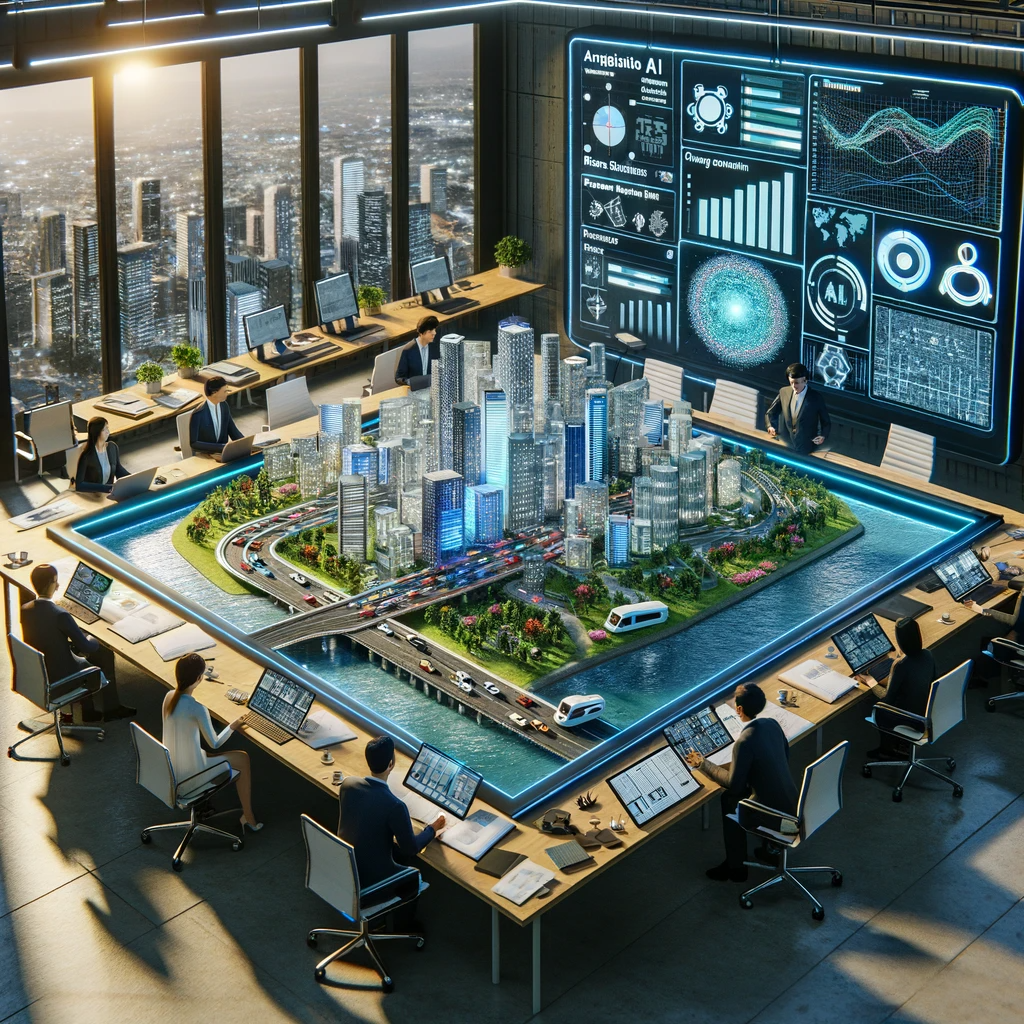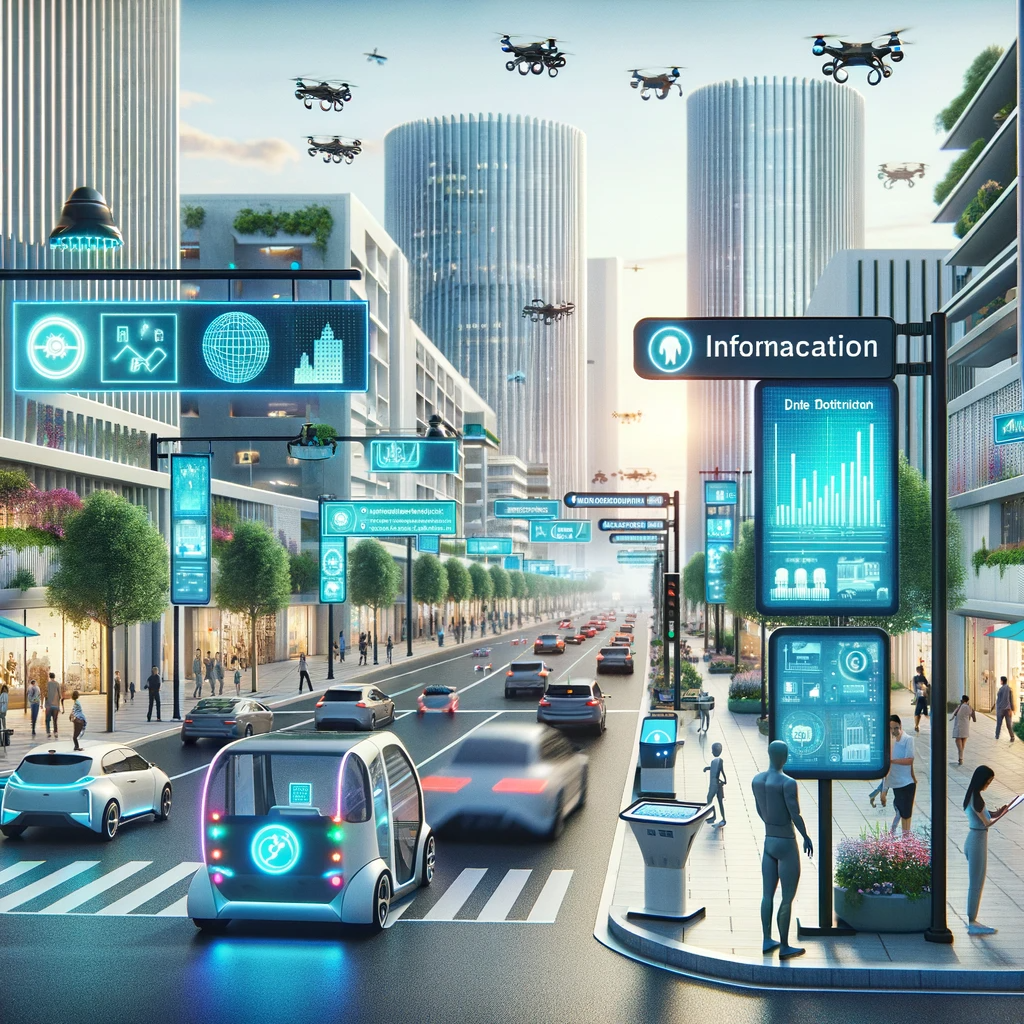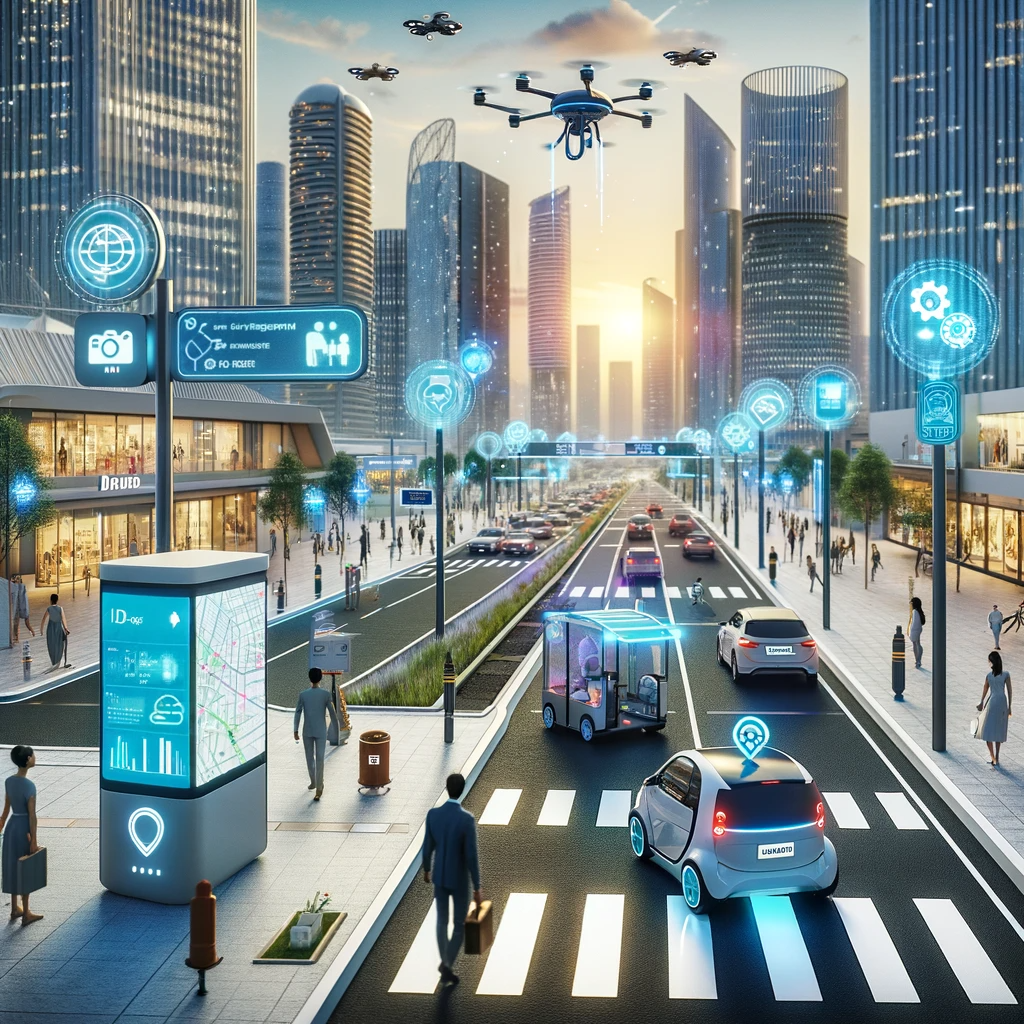In an era marked by unprecedented urbanization, cities around the world are facing a multitude of challenges. The relentless influx of people into urban areas has given rise to issues such as congestion, pollution, resource depletion, and the urgent need for efficient infrastructure. As the global population continues its inexorable shift toward urban living, the traditional approaches to urban planning are proving inadequate to address these complex urban challenges. Enter Artificial Intelligence (AI), a transformative force that holds the promise of reshaping the way we design, manage, and experience cities. In this article, we embark on a journey to explore the profound potential of AI in revolutionizing urban planning and shaping the emergence of smart cities. We delve into the role of AI in optimizing resources, enhancing sustainability, and creating urban environments that are not only efficient but also profoundly connected and responsive to the needs of their inhabitants. Join us as we unravel the intricate relationship between AI and the urban landscape, investigating how technology is driving a renaissance in the very way we envision, construct, and inhabit our cities.
The Urbanization Challenge
The Global Urbanization Trend
As we step into the 21st century, one of the defining features of our time is the accelerating pace of urbanization. Cities are growing at an unprecedented rate, attracting people seeking better opportunities and improved quality of life. The implications of this urbanization trend are profound, as more than half of the world’s population now resides in urban areas. However, with the urban migration comes a host of complex challenges. Cities must grapple with issues such as traffic congestion, inadequate infrastructure, increased energy consumption, and pollution. Traditional urban planning methods are often struggling to keep pace with the demands of rapidly growing urban populations.
The Need for Smart Cities
It is in this context that the concept of “smart cities” has emerged as a beacon of hope. Smart cities represent a paradigm shift in urban planning, characterized by the integration of advanced technologies and data-driven solutions to address urban challenges. These cities aspire to be intelligent, efficient, and sustainable, with a focus on improving the quality of life for their residents. The need for smart cities has never been more pressing, given the environmental, social, and economic challenges that urban areas face. AI stands at the forefront of this transformative journey, offering unprecedented opportunities to reshape urban landscapes in ways previously unimaginable.
The Role of AI in Urban Planning
AI in Data Analysis and Prediction
At the heart of AI’s impact on urban planning lies its remarkable ability to process vast quantities of data and derive meaningful insights. AI-powered algorithms can analyze data from various sources, including sensors, satellites, and social media, to understand urban dynamics. By recognizing patterns and trends, AI can predict future developments, anticipate challenges, and inform decision-makers. This data-driven approach enables cities to make informed choices and optimize their resources for better urban management.
Optimizing Infrastructure and Resource Management
AI’s potential in urban planning extends beyond data analysis. It can play a pivotal role in optimizing infrastructure and resource management. Through machine learning algorithms, AI can enhance transportation systems, manage energy grids more efficiently, reduce waste, and improve water resource management. This optimization not only leads to cost savings but also contributes to sustainability by minimizing resource consumption and environmental impact.
In the subsequent sections, we will delve into the practical applications of AI in shaping smart cities. We’ll explore how AI-driven features, such as intelligent transportation systems and energy efficiency solutions, are transforming urban life. Additionally, we will address the challenges and ethical considerations associated with AI in urban planning, as well as provide real-world examples and success stories that highlight the positive impact of AI on urban environments. Through this comprehensive examination, we aim to shed light on how AI is revolutionizing urban planning and paving the way for smarter, more sustainable, and efficient cities.

AI-Powered Smart City Features
Intelligent Transportation Systems
One of the most visible and impactful applications of AI in smart cities is the development of intelligent transportation systems (ITS). These systems leverage AI algorithms to enhance public transportation, reduce traffic congestion, and improve mobility for residents. AI can analyze real-time traffic data, predict traffic patterns, and optimize traffic signals to minimize congestion. Additionally, AI-driven innovations like autonomous vehicles and ride-sharing services are changing the way people move within cities. This section explores how AI is transforming urban transportation and making cities more accessible and efficient.
Energy Efficiency and Sustainability
Sustainable energy management is a critical aspect of smart city development. AI plays a pivotal role in optimizing energy consumption, promoting renewable energy sources, and reducing carbon emissions. Through advanced data analysis, AI can identify opportunities for energy conservation, predict peak energy demands, and adjust energy distribution accordingly. Smart grids, powered by AI, enable efficient energy management by monitoring and controlling energy flow in real time. This section delves into how AI is revolutionizing energy efficiency and sustainability in urban areas.
AI in Urban Design and Architecture
AI-Driven Urban Design
Urban planners and architects are increasingly turning to AI-driven tools to create more efficient and aesthetically pleasing city layouts. Generative design, a concept rooted in AI, allows for the exploration of numerous design possibilities based on specific parameters and goals. AI algorithms can consider factors such as traffic flow, green spaces, and building aesthetics to propose urban designs that optimize space and functionality. This section explores how AI is influencing the physical layout of smart cities and contributing to urban aesthetics.
Enhancing Accessibility and Inclusivity
Smart cities aspire to be inclusive and accessible to all residents, regardless of their abilities or background. AI-driven technologies are being employed to design urban environments that prioritize accessibility and inclusivity. From AI-powered navigation apps for people with disabilities to smart infrastructure that adapts to individual needs, AI is reshaping the urban landscape to ensure that no one is left behind. This section showcases examples of AI-powered innovations that promote inclusivity and improve the quality of life for all city dwellers.
Challenges and Ethical Considerations
Data Privacy and Security
The utilization of AI in urban planning necessitates the collection and analysis of vast amounts of data, raising concerns about data privacy and security. It is crucial to address these concerns to ensure that citizens’ personal information is protected, and AI systems are not vulnerable to cyberattacks. This section discusses the importance of data privacy and security in the context of AI-driven smart cities and explores measures taken to safeguard sensitive information.
Equity and Accessibility
While AI has the potential to create more efficient and inclusive cities, there is a risk that it may exacerbate existing inequalities. Smart city initiatives must prioritize equitable access to AI-driven services and benefits for all residents, regardless of socioeconomic status. This section examines the challenges related to equity and accessibility in smart city development and discusses strategies to ensure that AI benefits are distributed fairly.
In the upcoming sections, we will delve into real-world examples and case studies of cities that have successfully integrated AI into their urban planning and development. We will also explore the ongoing innovations and research in AI-driven urban planning, as well as the collaborative efforts required to shape the future of urban environments. Through this comprehensive exploration, we aim to provide a holistic understanding of how AI is driving a revolution in urban planning and paving the way for smarter, more sustainable, and efficient cities.
Success Stories and Case Studies
Real-World Examples of AI in Smart Cities
To illustrate the practical applications and transformative impact of AI in urban planning, this section will showcase real-world examples of cities that have successfully integrated AI into their development. Cities such as Singapore, Barcelona, and Dubai have embraced AI-driven solutions to address urban challenges and improve the quality of life for residents. Through case studies, readers will gain insights into how AI has revolutionized various aspects of urban living, from transportation and waste management to public safety and environmental sustainability.
Resident Perspectives
In addition to case studies, it’s essential to include the perspectives and testimonials of residents who have experienced the benefits of AI-driven urban development firsthand. Interviews with city dwellers who have witnessed improvements in mobility, accessibility, and overall urban quality of life can provide valuable insights into the human impact of AI in smart cities. These testimonials will highlight how AI technology has made a tangible difference in the daily lives of residents, fostering a greater sense of community and satisfaction.
The Future of Urban Planning with AI
Ongoing Innovations and Research
The transformative potential of AI in urban planning is an ongoing journey marked by continuous innovations and research. This section explores current trends and initiatives in AI-driven urban planning, including the development of advanced AI algorithms, sensor networks, and the integration of emerging technologies like 5G and the Internet of Things (IoT). Readers will gain a glimpse into the cutting-edge developments that promise to shape the future of smart cities.
Collaborative Efforts
The realization of AI-powered smart cities requires collaboration between various stakeholders, including urban planners, AI experts, policymakers, and engaged citizens. This section emphasizes the importance of collective efforts in shaping the urban landscapes of tomorrow. It highlights the need for open dialogue, interdisciplinary collaboration, and community engagement to ensure that smart cities are designed with the well-being and aspirations of residents in mind.

Conclusion
In conclusion, the fusion of AI and urban planning represents a transformative force that has the potential to revolutionize cities across the globe. As urbanization continues at an unprecedented pace, the challenges of sustainable, efficient, and inclusive urban development become increasingly pressing. AI offers innovative solutions to these challenges, from optimizing transportation systems and energy consumption to creating more accessible and inclusive urban environments.
However, as AI becomes integral to urban planning, it is crucial to address associated challenges related to data privacy, security, and equitable access to benefits. Responsible and ethical AI deployment is paramount to ensure that the benefits of smart cities are accessible to all residents, fostering a sense of community and well-being.
The future of urban planning with AI is marked by ongoing innovations, collaborative efforts, and a commitment to creating cities that prioritize sustainability, efficiency, and the well-being of their inhabitants. As we navigate this transformative journey, the possibilities for smarter, more sustainable, and efficient cities are boundless, driven by the promise of AI as a catalyst for positive change.
